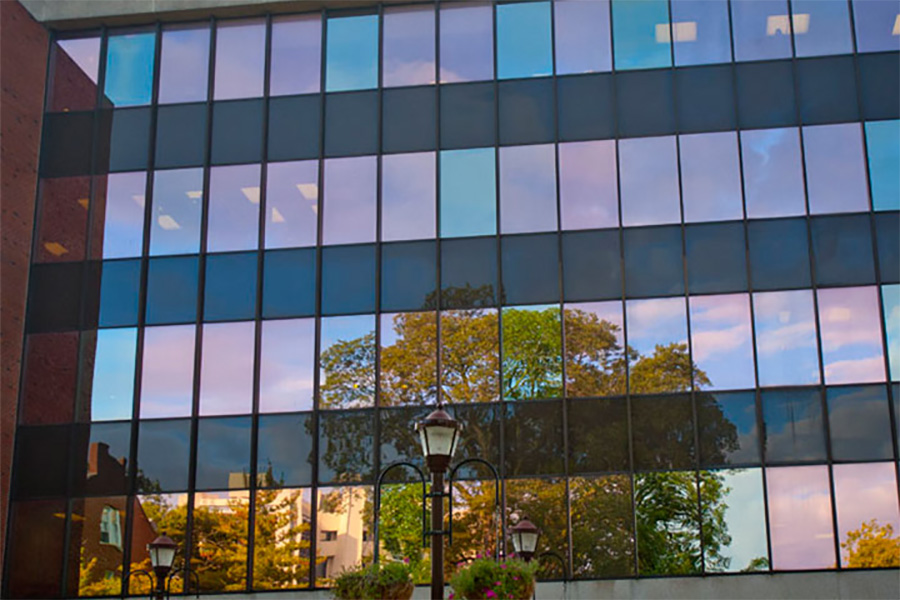In May, 423 College of Education (COE) faculty and staff from Illinois State University were invited by the COE Diversity Education Committee (DEC) to take part in a pilot training initiative in Restorative Practices. Ultimately 45 faculty and staff members committed to the first training in May, and 20 of those 45 participated in the second training in June.
The participants represented all units and roles across the College of Education. To supplement their professional development, participants in the first training received two books: The Restorative Practices Handbook and Restorative Circles in Schools: Building Community and Enhancing Learning. Additionally, those that participated in the second training received a copy of Restorative Justice Conferencing: Real Justice & The Conferencing Handbook.
The pilot initiative came about after the School of Teaching and Learning’s faculty members asked for additional professional development in equity and diversity. Becky Beucher, assistant professor in the School of Teaching and Learning and co-chair of the DEC; Shamaine Bertrand, assistant professor in the School of Teaching and Learning and member of DEC; and Lucille Eckrich, associate professor in the Department of Educational Administration and Foundations and co-chair of the DEC, met about how they could assist in bringing professional development to the COE. Having attended a seminar by Kevin Jones, a trainer in restorative practices for the International Institute of Restorative Practices (IIRP) and graduate of Illinois State University, Bertrand discussed the possibility of having the professional development center around restorative practices.
“We felt ultimately as a committee this was a tangible and potentially impactful way to support our COE community in adhering to the tenets of our mission, Realizing the Democratic Ideal, and namely, the first ethical commitment, ‘Sensitivity toward the varieties of individual and cultural diversity,'” said Beucher.
The data showed that the training was impactful and important for the University. National Center of Urban Education (NCUE) programs gained multiple benefits from the training initiative.
The mission of NCUE states that the National Center for Urban Education is grounded in social justice and works to cultivate and sustain innovative, resilient, and effective educators for urban schools and their communities. Resiliency cannot be taught, but NCUE programming offers many opportunities for participants to be challenged and “stretched.” One of these opportunities is STEP-UP (Summer Teacher Education Partnership for Urban Preparation) a rigorous four-week teaching and community internship and summer residency program for preservice teachers from Illinois State University. Many preservice and in-service teachers ask for strategies on how to manage a classroom. The restorative practice training provided the language that staff needed to communicate the intricacies of building relationships with the students in order to build community in their classrooms, thus, building a safe space where everyone is respected and heard.
In July NCUE staff implemented what they learned at the restorative practices training into the STEP-UP program, sharing with the fellows how the tenets of restorative practices could positively impact their time spent in Chicago Public School classrooms. Nadya Chiavola, a 2019 STEP-UP fellow who will be starting the Chicago PDS yearlong student teaching program this fall, said: “The restorative practices professional development allowed me to take a step back and understand that a child’s behavior is heavily influenced by their environment. It provided me with many strategies that ultimately enhance the teacher-student relationship and help avoid problems in the future.”
Furthermore, NCUE’s Induction and Mentoring Program for first and second year Illinois State graduates teaching in Chicago will receive restorative practices training. The message from restorative practices not only resonates with teachers and students, but communities as well. IIRP’s website describes restorative practices as “an emerging social science that studies how to strengthen relationships between individuals as well as social connections within communities.” Building equity within the classroom community and outside in the community of the students and their families is part of that message.
Katy Reed, a current student who participated in STEP-UP 2019, said, “The Restorative Practices tools I learned during STEP-UP will help me to increase feelings of equity in my classroom while promoting a secure and supportive environment for all students.”
Much preparation and planning went into the Restorative Practices initiative, made possible with the collective support of Interim College of Education Dean Kevin Laudner, the Diversity Education Committee, and all College of Education units. The training has potential to yield significant gains throughout the university.
When asked whether the training changed the way she looks at certain things in relation to personal or work life, Eckrich replied: “Yes, I am more aware of my desire and need to use affective statements and questions in both personal and work life. I see a much greater place than I did before for the role of emotions in both causing and resolving conflicts in both settings. I see the importance of ‘separating the deed from the doer’ and allowing those harmed to play a role in restorative justice, and for the free expression of emotion or affect while minimizing negative affect and maximizing positive affect.” The effects of the restorative practices initiative training will reach far beyond Illinois State’s campus, and will create ripples and waves in programs like the National Center for Urban Education and classrooms throughout Illinois.

